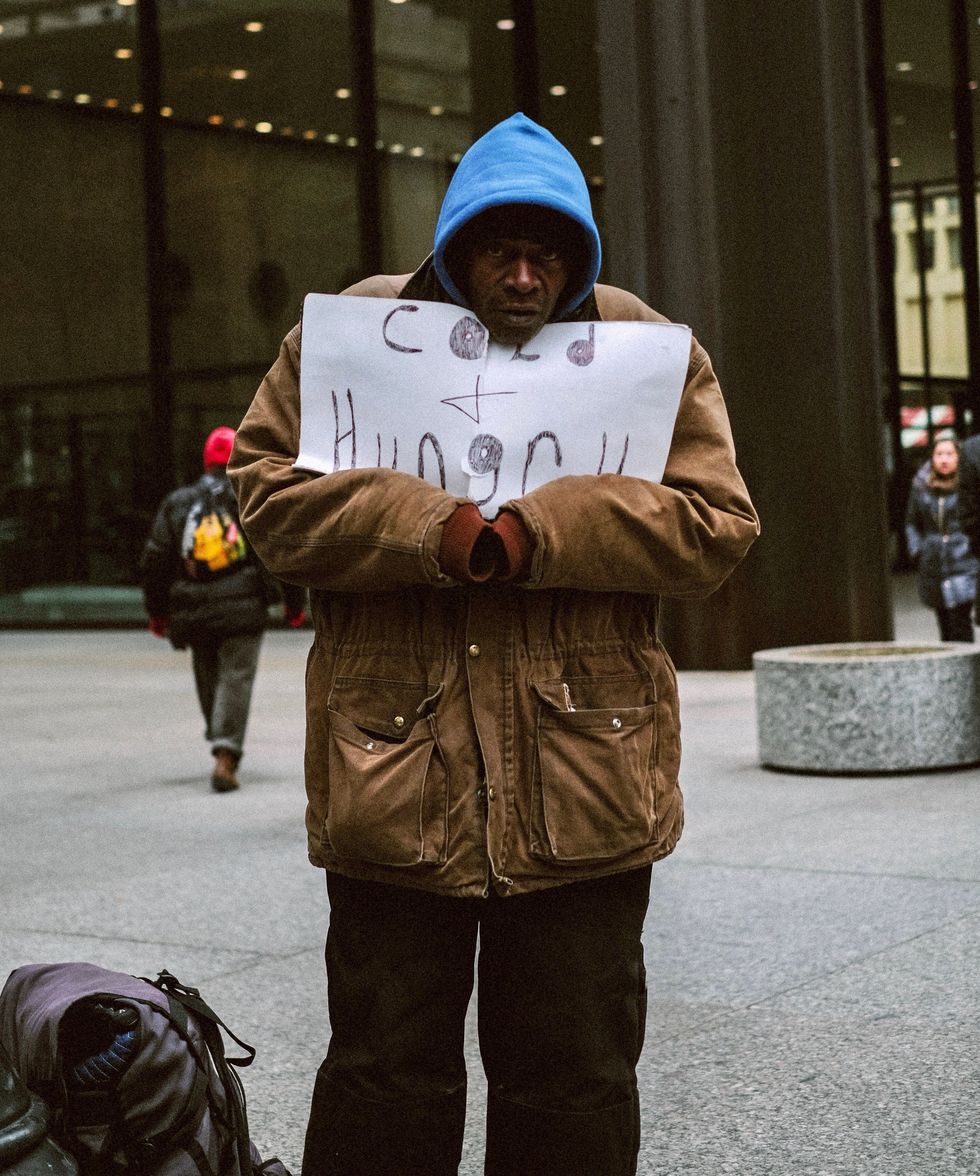We rush past them, avert our eyes, maybe offer a half-smile, or, if we’re feeling generous, a dollar. There’s someone on every corner, so many that they become part of the landscape: decorations of urban life to remind us of our privilege. “Have a nice day,” we mumble, our way of feeling compassionate amidst our discomfort. We don’t know what brought him to lie on the sidewalk every day or what hardships keep him there, but a part of us questions why we can walk thirteen blocks to work while he can’t even sit up on the street. Does he lack motivation? Is he scamming me? Though most agree that homelessness is a big problem, we’re generally unsure of how we could help. We search for remediation in public policy and welfare, assuming that a “big problem” demands a “big answer,” but could there be something smaller, yet just as powerful, that could make all the difference? It’s hard to imagine people wouldn’t be in support of large government-mandated improvements for homelessness, but what happens when the responsibility for reform lies in smaller hands, like yours and mine?
Two summers ago, I spent six weeks taking classes at NYU as part of their Pre-College program. During my Urban Culture class, activist Jay Toole took us on a walking tour of Greenwich Village to explain her heartbreakingly real experiences of homelessness by showing us the number of places that held those memories. The most impactful part of the tour wasn’t its emotional (or physical) strain of the day, but rather the small piece of advice Jay offered before we left: “Never tell a homeless person to ‘have a nice day.’” At first I was shocked: “What am I supposed to say? Sorry?” But, after reflecting on Jay’s story, the reason became obvious. I realized that telling a homeless man to “have a nice day” is only an acknowledgement of my ignorance; though it may be a tendency vaguely rooted in empathy, my half-hearted wish that things may change for him isn’t a genuine enough gesture to help.
If I learned anything from Jay, it’s that the homeless are people— people with lives more complexly devastating than we often like to assume— and possibly the greatest way we can help is to treat them as such. No, my dollar won’t alter the trajectory of the man on University Place’s life-- it won’t change the fact he doesn’t have a place to sleep or remedy the lifelong struggles he’s faced, but the value of this gesture shouldn’t be reduced to that of a dollar. In fact, my routine of giving King-D change was the most careless part of our daily interaction, as it served as only a precursor to our conversation about his aspirations to become an artist, about his daughters living in South Carolina, or his poking fun at my youth, demanding I do something more with it than he had. To turn a blind eye to the reality homeless people so publicly face is to disregard the humanity beneath every social or human rights issue; it is ignoring the fact that half of the answer to such a grand issue can be found within the ways in which we choose to perceive it; the extent to which we, as individuals, feel we can make a difference.
Empathy cannot eliminate homelessness, but it does guarantee an enhanced quality of life in the most direct and simple ways possible. Empathy in urban life can form relationships and a sense of community many claim the city lacks. I greeted King-D every day he was there, and wondered where he was when he wasn’t. Sometimes I gave him money, other times I did not; sometimes offered a passing ‘hello,’ and other days had conversations so long I found myself sitting next to him on the sidewalk. In doing so, not only do I feel I have bettered his life in some small way, but these interactions undoubtedly have improved mine. Through empathy, homelessness no longer feels daunting; it feels human. Homelessness is a human issue with a human answer— an answer that can be as simple as promoting the notion that a series of meaningful days can amount to a meaningful life— one where we don’t merely hope others “have a nice day” but, rather, we become the reasons why they do.

















